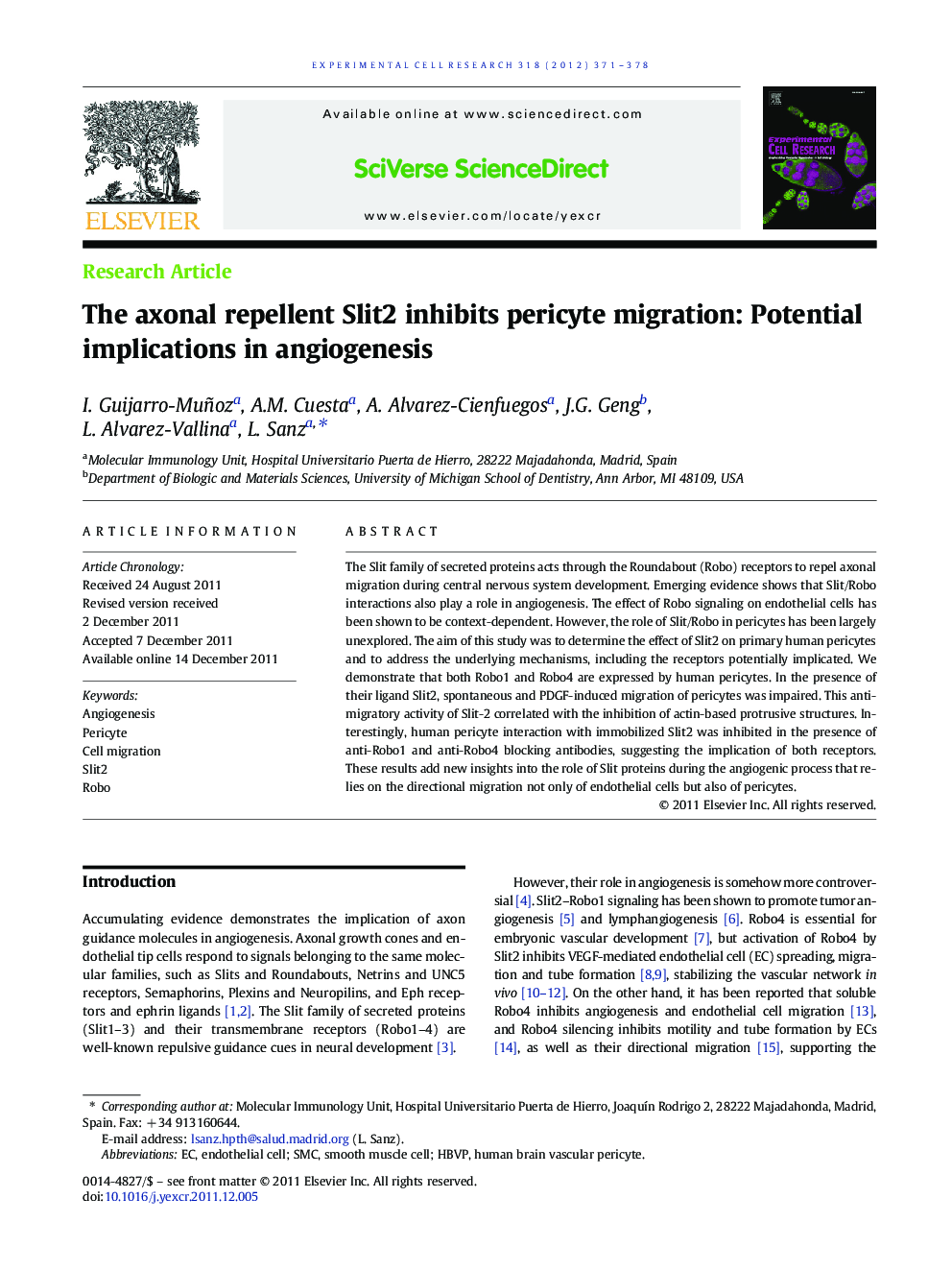| Article ID | Journal | Published Year | Pages | File Type |
|---|---|---|---|---|
| 2130788 | Experimental Cell Research | 2012 | 8 Pages |
The Slit family of secreted proteins acts through the Roundabout (Robo) receptors to repel axonal migration during central nervous system development. Emerging evidence shows that Slit/Robo interactions also play a role in angiogenesis. The effect of Robo signaling on endothelial cells has been shown to be context-dependent. However, the role of Slit/Robo in pericytes has been largely unexplored. The aim of this study was to determine the effect of Slit2 on primary human pericytes and to address the underlying mechanisms, including the receptors potentially implicated. We demonstrate that both Robo1 and Robo4 are expressed by human pericytes. In the presence of their ligand Slit2, spontaneous and PDGF-induced migration of pericytes was impaired. This antimigratory activity of Slit-2 correlated with the inhibition of actin-based protrusive structures. Interestingly, human pericyte interaction with immobilized Slit2 was inhibited in the presence of anti-Robo1 and anti-Robo4 blocking antibodies, suggesting the implication of both receptors. These results add new insights into the role of Slit proteins during the angiogenic process that relies on the directional migration not only of endothelial cells but also of pericytes.
